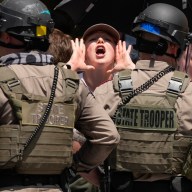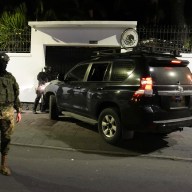By Fathin Ungku
SINGAPORE (Reuters) – A Singaporean man has been detained for “terrorism-related activities” that included supporting the Islamic State (IS) militant group and encouraging violence through Facebook posts, the government said on Friday. Multi-ethnic Singapore has an image as one of the safest countries in the world and has never seen an attack by Islamist militants though authorities did break up a plot to bomb several embassies soon after the Sept. 11, 2001, attacks on the United States. Authorities have detained or repatriated dozens of people in the past year, most of them migrant Bangladeshi workers, for suspected links to militant fund-raising. Several Singaporeans have also been radicalized, with some trying to join the Islamic State in Syria, authorities have said. The Ministry of Home Affairs identified the detained suspect as Zulfikar bin Mohamad Shariff, 44, and said he had been held this month under an Internal Security Act (ISA) that allows for suspects to be held for lengthy periods without trial. The ministry said Zulfikar had been “radicalized” in 2001 before settling with his family in Australia in 2012.
He was found to be supportive of IS as well as al Qaeda and an allied regional group called Jemaah Islamiah, and he had strongly encouraged Muslims to engage in armed jihad via postings on Facebook, it said. “In view of the high level of the terrorism threat that Singapore currently faces, and the global terrorism threat posed by ISIS, Zulfikar’s promotion of violence and ISIS and his radicalizing influence pose a security threat to Singapore,” it said, referring to Islamic State. Zulfikar had contributed to the radicalization of a man detained under the ISA last year and to that of “a radicalized businessman” who had been placed under a restriction order this month. A restriction order means a person cannot move home, change jobs or go abroad without approval. (Editing by Marius Zaharia and Robert Birsel)


















